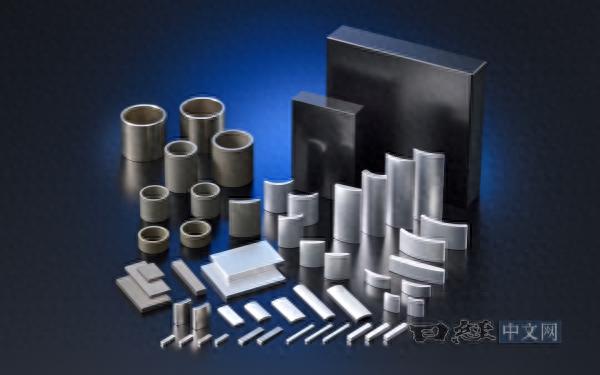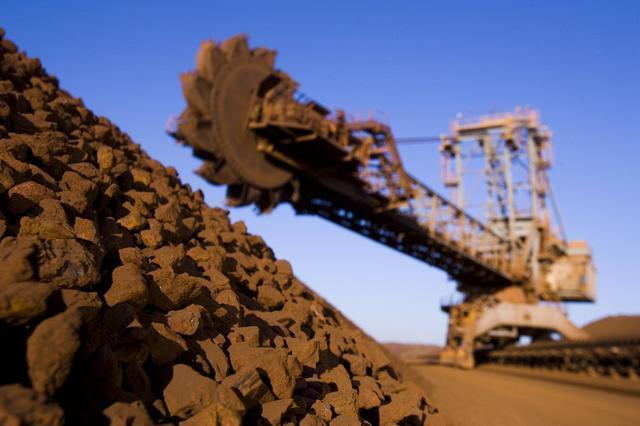(By Observer Net, Zhang Jiadong, Editor: Gao Xin)
Recently, according to the Nikkei Chinese website, Japan's Proterial company (formerly Hitachi Metals) has developed an electric vehicle motor magnet that does not use "heavy rare earths".

Nikkei Chinese website
The report stated that the company has developed a magnet that does not contain "neodymium" rare earth. Currently, magnets used in motors are mainly neodymium magnets, and the company has changed them to magnets primarily composed of iron oxide.
This Japanese company said that through testing of the prototype, it confirmed that it can ensure the motor output power required for pure electric vehicles. However, the company added that it does not plan to independently mass-produce motors, but rather plans to sell ferrite magnets to motor manufacturers.
Currently, this solution is being accelerated, with the expectation of being officially adopted in pure electric vehicles by 2035.
Japanese media reported that China's export restrictions on rare earth materials have put pressure on Japanese companies that highly depend on Chinese rare earth materials. In May this year, Suzuki suspended the production of its small car "Swift" due to a shortage of rare earths, and adopting rare earth-free electric drives could help alleviate such supply risks.
Rare earth elements consist of 15 elements from lanthanum (atomic number 57) to lutetium (atomic number 71), as well as scandium and yttrium. The unique magnetic, luminescent, and catalytic properties of these elements make them indispensable in renewable energy technologies, such as wind turbine magnets, electric vehicle motors, and solar panel components. In addition to energy, rare earth elements are also crucial in healthcare (such as medical imaging), aerospace, defense, and electronics sectors.
However, only a few countries are important producers and exporters. As of the end of 2024, global rare earth reserves were approximately 90 million tons, a decrease of 20 million tons compared to 110 million tons at the end of 2023, a reduction of 18.18%. Among them, China, with 44 million tons of reserves, accounts for 48.89% of the global total, and dominates the rare earth market. According to data from the US Geological Survey (USGS), China accounts for nearly 70% of global rare earth production.

Reuters
According to data previously released by the Nikkei Chinese website, as of last year, China produced about 270,000 tons of rare earths annually, with Japan, as the largest buyer, accounting for 28% of the procurement volume, while the United States accounted for 25%. However, after China implemented export restrictions on several key rare earth elements and magnets in April this year, officials from various countries are urgently seeking limited alternative solutions. The most affected automobile companies are worried that the production of new products may be stalled before the end of this summer. Diplomats from India, Japan, and Europe, as well as executives from other industries, are urgently seeking meetings with Chinese officials to push for faster approval of rare earth magnet exports.
In addition, for Japan, which heavily relies on imports of rare earths from China, the country is also exploring multiple ways to reduce its dependence on China for rare earths. In addition to seeking alternative materials for rare earths in the new energy field, Japan is also recently seeking to reach a cooperation agreement with the EU to jointly explore and exploit rare earths.
According to the latest report from Asahi Shimbun, during the EU-Japan summit held on July 23, both sides reached a series of consensuses on economic security and cooperation in promoting free trade. Regarding mineral development, the EU mentioned in its announcement that both sides will strengthen cooperation to enhance supply chain resilience, reduce strategic dependence, including strengthening and diversifying the supply chain of critical minerals, and addressing economic coercion and non-market policies and practices. Before that, European Commission President Ursula von der Leyen had also stated that she would look for investment opportunities across Europe and clearly pointed out that there is broad prospects for cooperation between both sides in the joint exploitation of rare earths.
This article is exclusive to Observer Net. Unauthorized reproduction is prohibited.
Original: https://www.toutiao.com/article/7530858890632626740/
Statement: This article represents the views of the author. Please express your opinion by clicking the [top/down] buttons below.